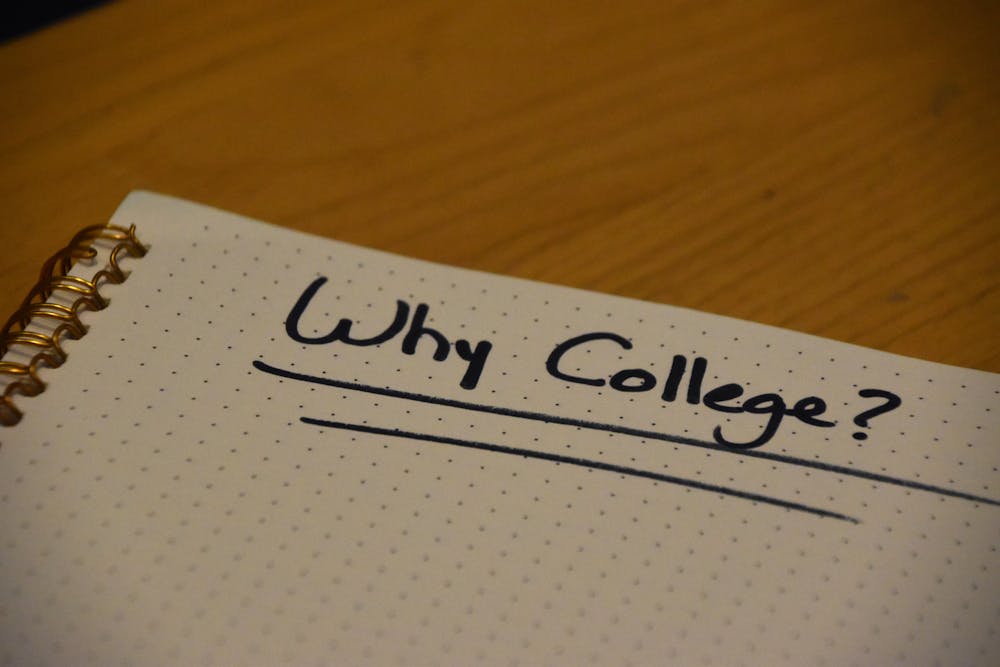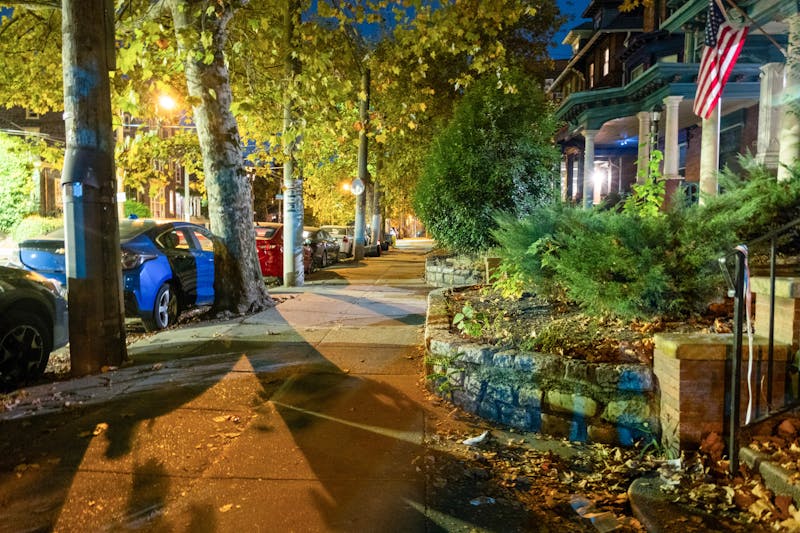
The word “explore” is written thrice in the College of Arts and Sciences mission statement. Penn urges college students to explore (1) “the broad spectrum of human knowledge” (2) “fundamental approaches to the acquisition and interpretation of knowledge” and (3) “our intellectual heritage.” Students are encouraged to explore fields of knowledge from quantum physics to renaissance poetry (even the intersection between the two), essentially curating a plate of academic curiosity from an intellectual buffet. Yet, we’re rarely asked to explore the intellectual buffet itself — why college exists, what it’s for, and whom it serves.
That’s exactly the type of exploration offered by first-year seminar HIST 0012: “Why College? Historical and Contemporary Perspectives.” The class description notes, “What is the purpose of ‘college’? How have these goals and objectives changed across time and space? What should college do, and for whom? And how can colleges be reformed to meet their diverse purposes and constituencies?”
As a member of the class, along with 14 other students and history of education professor Jonathan Zimmerman, I went through a period of discovery of both myself and Penn that was integral to my college experience. Professor Zimmerman (who I now call “JZ”) first challenged us to confront ourselves with “Why college?” Why did we choose Penn? Why pursue higher education at all? An answer like, “Because that's just what you're supposed to do after high school,” didn’t suffice. For possibly the first time ever, we weren’t just sampling from the intellectual buffet of college — we were examining who created it, for whom, and what it meant for us to have a seat at the table.
The following weeks in Zimmerman’s classroom were spent dissecting the origins and foundation of higher education. We examined the inner workings of institutions, and how each role shapes the creation of university classes and culture. We delved into how we, as students, navigate our place in college, and how historical barriers have excluded many from doing so. Zimmerman refused to hide behind a facade of Penn’s perfection, insisting that we speak about the unspoken. Our discussions did not shy away from complexities of college campuses: Topics like campus politics, religion, greek life, hookup culture, suicide, and sexual assault were all on the table.
In addition to exposure to literature such as “American Hookup: The New Culture of Sex on Campus” by Lisa Wade, “Campus Politics: What Everyone Needs to Know” by Professor Zimmerman himself, and others, we also benefited from the insights into numerous figures on Penn’s campus. The class had the opportunity to speak to admissions officers, authors, greek life members, political and religious spokespeople, and even Penn’s Provost John L Jackson Jr.
The course worked to give first-year students the opportunity to discuss many of the most pressing issues on Penn’s campus. For instance, we examined sexual victimization beyond "no means no,” delving into the social contexts that shape how university culture can contribute to students becoming both victims and perpetrators of sexual assault. We came to essential conclusions with Penn Violence Prevention about the issue of sexual assault on Penn’s campus that couldn’t be reached in a 75-minute consent circle during New Student Orientation. We also examined mental health issues on elite campuses, analyzing what societal and Penn-specific factors can foster a culture detrimental to mental wellness. Through these discussions, the course deepened our understanding of critical issues facing college students, fostering discourse that Penn’s admissions website neglects to mention.
We discussed the experience of disadvantaged and underrepresented students at Penn and theorized how Penn and institutions like it can fail students. These conversations pushed us to not only question the institution, but also our roles within it — a mindset that will shape how I navigate and engage with Penn for the rest of my college career.
The instrumental knowledge gained in this class, though, was given to a mere 15 students — only 0.006% of Penn’s Class of 2028. The critical conversations held within our David Rittenhouse Laboratory classroom are ones to which every Penn first-year student deserves to contribute. Expanding “Why College?” to every first year could transform the very culture on our campus. If Penn wants students to explore, the very best exploration should begin with an understanding of the institution itself.
Former Yale professor and author of “Excellent Sheep: The Miseducation of the American Elite and the Way to a Meaningful Life,” William Deresiewicz advises students to “Avoid a school that's going to hand you a course catalog when you walk in the door, pat you on the shoulder, and leave you to figure it out on your own. A couple of advising sessions aren't going to do it, either. What you want is a dedicated freshman seminar — meaning more than just a writing class — that is designed to introduce you to the purpose of a college education.”
Penn could foster such a course, and they wouldn’t be the first to do so; Stanford University’s highest course enrollment is their own version of “Why College?” College 101 is a course offered in their “COLLEGE” program required for first years, which aims to ensure that “going to college is not just about acquiring the ability to make a living, but about exploring what makes living worthwhile.”
The concept of exploration should not be limited to students in the College of Arts and Sciences. First-year undergraduates should be forced to question what it means to be at Penn regardless of major or school. Of course, it’s impractical to add an additional 160 “Why College” seminars to Penn’s course directory. However, the same curriculum can be applied to larger lecture classes and be complemented by discussion in small recitation groups. These recitation groups, while all students will not get the privilege of Zimmerman’s admirable honesty, should be led by faculty and Penn students committed to improving our campus. Although each class may not get the opportunity to speak individually with members of the Penn community, making a universal course could compel more Penn figures to offer essential insight to first years. Expanding access to this course can foster a campus-wide development towards improvement of self and community, as well as compel students to go through Penn purposefully.
If Penn is truly committed to cultivating classes for intellectually curious students ready to sample from an academic buffet, it must prioritize giving space for students to ponder: Why college? Why Penn? HIST 0012 gave me the tools to think critically about my future in a classroom setting that was fundamental to my adjustment into Penn. I know my answer to "Why college?" and although every student may not by the time they exit the classroom, we should give them the opportunity to begin asking themselves the same question.
PIPER SLINKA-PETKA is a College first year studying health and societies from W. Va. Her email address is pipersp@sas.upenn.edu.
The Daily Pennsylvanian is an independent, student-run newspaper. Please consider making a donation to support the coverage that shapes the University. Your generosity ensures a future of strong journalism at Penn.
Donate






